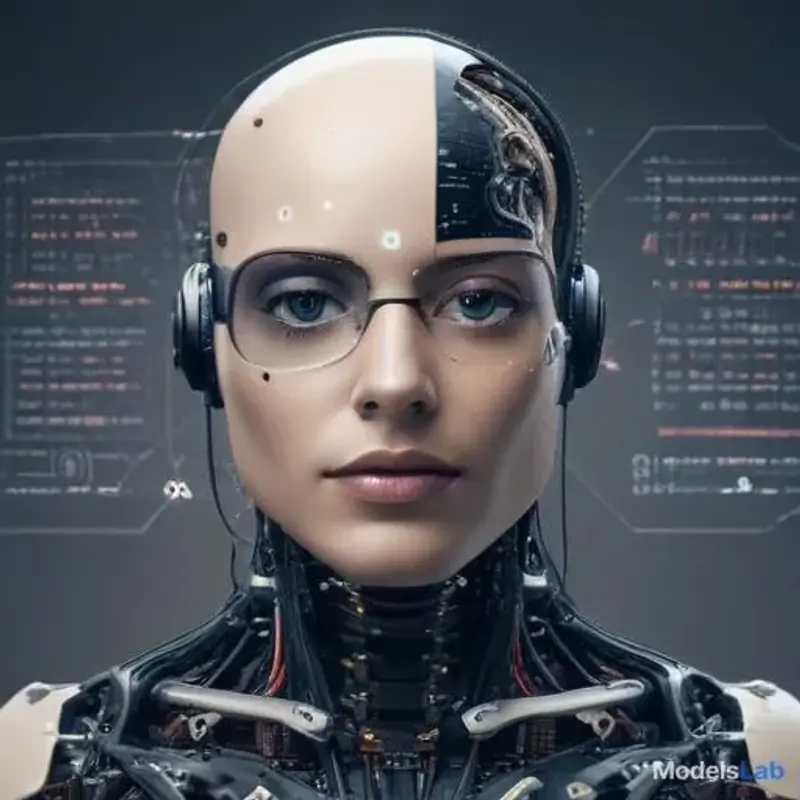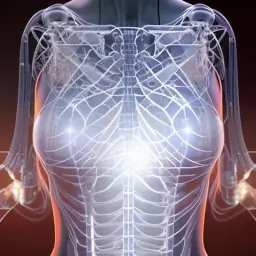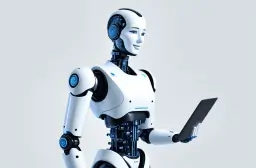Will AI Transform the Future of Programming Careers?

Table of Contents
It’s hard to ignore the buzz. From AI coding assistants to automated code generation, artificial intelligence seems to be rewriting the rules of programming. As software engineers, coders, and developers, many of us are now asking: Are we looking at a future where AI changes the very fabric of our careers? The topic isn’t just hot—it’s vital.
We’ve seen technology evolve at lightning speed, but this moment feels different. AI is no longer just enhancing our tools; it’s stepping into the development process itself. We’re witnessing AI in software development making decisions, writing code, optimizing systems, and even catching bugs. This shift challenges our understanding of what it means to be a programmer.
So here’s the big question: Will AI eventually replace us, or will it redefine us? As we dive into this discussion, we’ll explore how automation in coding, AI tools for developers, and machine learning in programming are reshaping our roles. Let’s uncover whether this transformation is a threat, an opportunity, or something even more profound.
The Rise of AI in Software Development
Over the last few years, we’ve seen a massive surge in AI-driven development tools. From GitHub Copilot to ChatGPT’s code-writing abilities, AI coding assistants are no longer a futuristic concept—they’re already a daily tool for many developers. These tools help automate repetitive tasks, refactor code, and even suggest logic improvements, allowing us to focus on higher-level thinking.
The impact of AI on programmers is undeniable. With machine learning in programming, systems can now learn from millions of lines of code to generate efficient snippets on demand. As we integrate AI into our workflows, we gain speed, reduce errors, and sometimes discover creative solutions that might not have crossed our minds.
Still, this innovation raises eyebrows. Will AI replacing coders become a reality? The current trajectory shows that while AI may take over mundane aspects of software engineering, it still lacks the human touch in critical thinking, architectural decisions, and understanding real-world business needs. For now, AI is a co-pilot—not the pilot.
Coding with Artificial Intelligence: A New Era of Collaboration
We are stepping into a phase where coding with artificial intelligence is less about control and more about collaboration. AI-assisted coding doesn’t mean handing over the reins—it means coding smarter. Tools like Tabnine, Replit Ghostwriter, and OpenAI Codex offer us second opinions, real-time suggestions, and productivity boosts.
Instead of fearing AI in tech careers, we can embrace these innovations to become more agile and strategic. AI can automate boilerplate code, generate test cases, and catch bugs before deployment. This allows us to focus on solving complex problems and building innovative solutions—things AI isn’t yet equipped to do alone.
This collaborative model hints at the future of programming with AI—one where our roles evolve rather than dissolve. We’re not being replaced; we’re being amplified. And that shift is something we need to understand and adapt to, not resist.
Will AI Replace Coders? Debunking the Myth
It’s a common fear: “AI is coming for our jobs.” And while it’s true that automation in coding is accelerating, the idea of AI completely replacing human coders is an oversimplification. Programming is more than just syntax—it’s creativity, context, and communication.
AI vs human coders is not a fair match. While AI can generate code, it often lacks a deep understanding of business logic, user experience, and the nuances of stakeholder needs. AI is great at solving defined problems—but when it comes to ambiguous or novel challenges, we still lead the charge.
That said, the roles of developers will inevitably change. Rather than spending hours debugging or writing basic functions, we’ll shift toward oversight, orchestration, and innovation. The future of AI in coding isn’t about replacement—it’s about realignment.
The Future of Programming with AI: What to Expect
Let’s paint a picture. Imagine a future where you start a project by prompting an AI to build out your app’s skeleton. You review and guide it, refine logic, and add layers of design thinking. This is the promise of AI-driven development—and it’s coming fast.
AI programming advancements will likely continue to streamline the development lifecycle. We’ll see smarter deployment pipelines, improved quality assurance, and more rapid prototyping. In fact, programmer evolution with AI means we’ll spend less time on code mechanics and more on creative strategy and interdisciplinary work.
But with these gains come new responsibilities. We’ll need to learn how to vet AI-generated code, maintain ethical standards, and ensure software safety. In many ways, our jobs will become more complex—not less—just in a different dimension.
AI Tools for Developers: A Growing Arsenal
The toolbox for developers is expanding with AI integration. From smart IDE plugins to cloud-based machine learning frameworks, we now have access to tools that adapt and learn from our habits. These AI tools for developers are not just helpers—they’re accelerators.
Take AI-powered code review tools that catch bugs or security flaws in seconds, or assistants that help document APIs in real-time. These capabilities dramatically reduce friction in our workflows, enhancing both speed and quality.
And yet, these tools still require a human in the loop. AI can suggest, but we must decide. It can automate, but we must validate. Understanding this balance will be key to succeeding in a future dominated by AI and developer roles.
Redefining the Programmer’s Role in an AI World
As AI transforms the landscape, we must rethink what it means to be a programmer. The traditional path of “write, test, debug” is evolving into “design, delegate, validate.” Our roles are becoming more about decision-making, ethical oversight, and problem framing.
AI transforming programming doesn’t eliminate the need for us—it highlights new areas of growth. Soft skills like communication, empathy, and design thinking are becoming just as valuable as technical chops. Developers of tomorrow will be hybrid thinkers—part technologist, part strategist.
In the end, the AI and programmer jobs landscape will favor those who adapt, learn, and embrace change. By growing alongside AI, we not only future-proof our careers—we enhance them.
How We Prepare for What’s Next
So, how do we get ready? Continuous learning is non-negotiable. Staying updated on AI programming advancements, exploring machine learning in programming, and experimenting with AI-assisted coding tools will give us a major edge.
We also need to rethink our education systems and company cultures. AI in tech careers demands a blend of technical fluency and adaptability. By fostering curiosity, collaboration, and a growth mindset, we ensure that AI works with us—not against us.
Ultimately, we must lead the change. The future of programming with AI will be shaped not just by algorithms, but by how we choose to integrate them into our daily work. We’re not just spectators—we’re architects of this new era.
Embracing the Shift: Our Final Thoughts
We’re standing on the edge of one of the biggest shifts in tech history. AI is not here to erase our roles but to evolve them. Yes, some tasks will disappear—but new, more impactful ones will emerge in their place.
The key is to shift our mindset. Let’s stop asking “Will AI replace us?” and start asking, “How can AI empower us?” By embracing this transformation, we become not just coders, but pioneers of the future.
So, let’s step forward—not with fear, but with curiosity and confidence. The future is not written in code—it’s written by those willing to code the future, with AI by their side.
Popular Tags
ADS SPACE HERE


